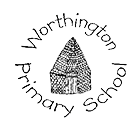Our Curriculum
Opportunity and Achievement for All
The Department for Education’s (DfE) working definition of the curriculum. “The curriculum is a framework for setting out the aims of a programme of education, including the knowledge and understanding to be gained at each stage (intent); for translating that framework over time into a structure and narrative, within an institutional context (implementation) and for evaluating what knowledge and skills pupils have gained against expectations (impact/achievement).”
At Worthington Primary School our curriculum is underpinned by our vision and the values which we hold dear to our schools. The curriculum is the means by which our schools achieve their objective of educating children in order to lead fulfilling lives. We value the importance of each person in our community and the way in which all children are unique. Our curriculum promotes respect for the views of and plans for the needs of each individual child, of ALL needs, (SEND, PD, SEMH, BSED etc.) vulnerabilities, disadvantage, recognising any socio-economic and cultural similarities and differences. We value and develop the academic, spiritual, moral, social, emotional and cultural development of each person, as well as their intellectual and physical growth.
Our curriculum is all the planned and organised activities in order to ensure our children:
- Develop a good academic knowledge and understanding of the objectives of our curriculum and learn and progress well
- Have positive learning attitudes so that they enjoy coming to school, develop inquiring minds and acquire a solid basis for lifelong learning, helping them become more independent and take ownership of their learning
- Have good personal, mental, social, emotional, spiritual and emotional growth and development and good behaviour.
It includes not only the formal requirements of the National Curriculum but also the range of enrichment and extra-curricular activities that our schools organise (visits, visitors, clubs, events, engagement in opportunities such as competition, community work etc.) for children to develop experiences and their cultural capital. It also includes the ‘hidden curriculum,’ - what the children learn from our expectations, the way everyone is treated and expected to behave. We aim to teach children how to grow into positive, responsible people who have developed good social skills and can work and co-operate with others while developing knowledge and skills so that they know who they are, achieve their potential and become active citizens within the school community and beyond.
Our curriculum design is bespoke and individualised for our small school due to unique heritage, the range of mixed age classes and the diversity in and beyond the community we serve.
In order to ensure a rigorous and clear curriculum plan we have crafted our curriculum intent articulating what we want the children to know and do by the time they leave our schools. With this information we create rolling programs of highly engaging topics and themes making ‘solid’ cross-curricular links, this enables children to develop their depth of knowledge in foundation subjects whilst applying the key skills and concepts of English and Maths. This is regularly reviewed based on our annually changeable mixed age class structures. Where relevant subjects are taught as standalone subjects and no links are tenuous. Each subject is planned meticulously but are cross referenced and matched at a ‘long term’ level in order to ensure the best approach as well as maintaining motivation, enthusiasm, and interest for both teachers and children alike making teaching and learning meaningful and engaging. Staff are versed in the understanding of developing effective, well considered and crafted schema and understand the need to ensure opportunities for assimilation and accommodation for long term, sustained successful learning.
The Early Years Foundation Stage Framework and the National Curriculum has been adhered to and this has been woven into our curriculum by all staff, overseen by subject leaders’ knowledge and expertise so that all teachers have ownership and investment in the curriculum we have. We have ensured coverage of all the knowledge and skills necessary for each area, fundamentally underpinned by the English curriculum.
As importantly as our curriculum ‘objective’ development has been the review and refreshing of CPD around teaching and learning, sound pedagogy and the development of good learning characteristics. Self-efficacy/knowledge of self and self-regulation and how to teach these effectively. Interlinked within this work has been the explicit understanding of and planning for children’s knowledge of metacognition (plan, apply and evaluate learning).
This has all enhanced the effectiveness of the teaching and learning of our curriculum in order to ensure effective implementation.
This is a copy of the whole school Curriculum Map.
2024/2025 Cycle A
2025/2026 Cycle B
If you require any further information relating to our Curriculum, or an in-depth look at the learning in each subject, for each term, then please go to the Class area or speak to the class teacher.
